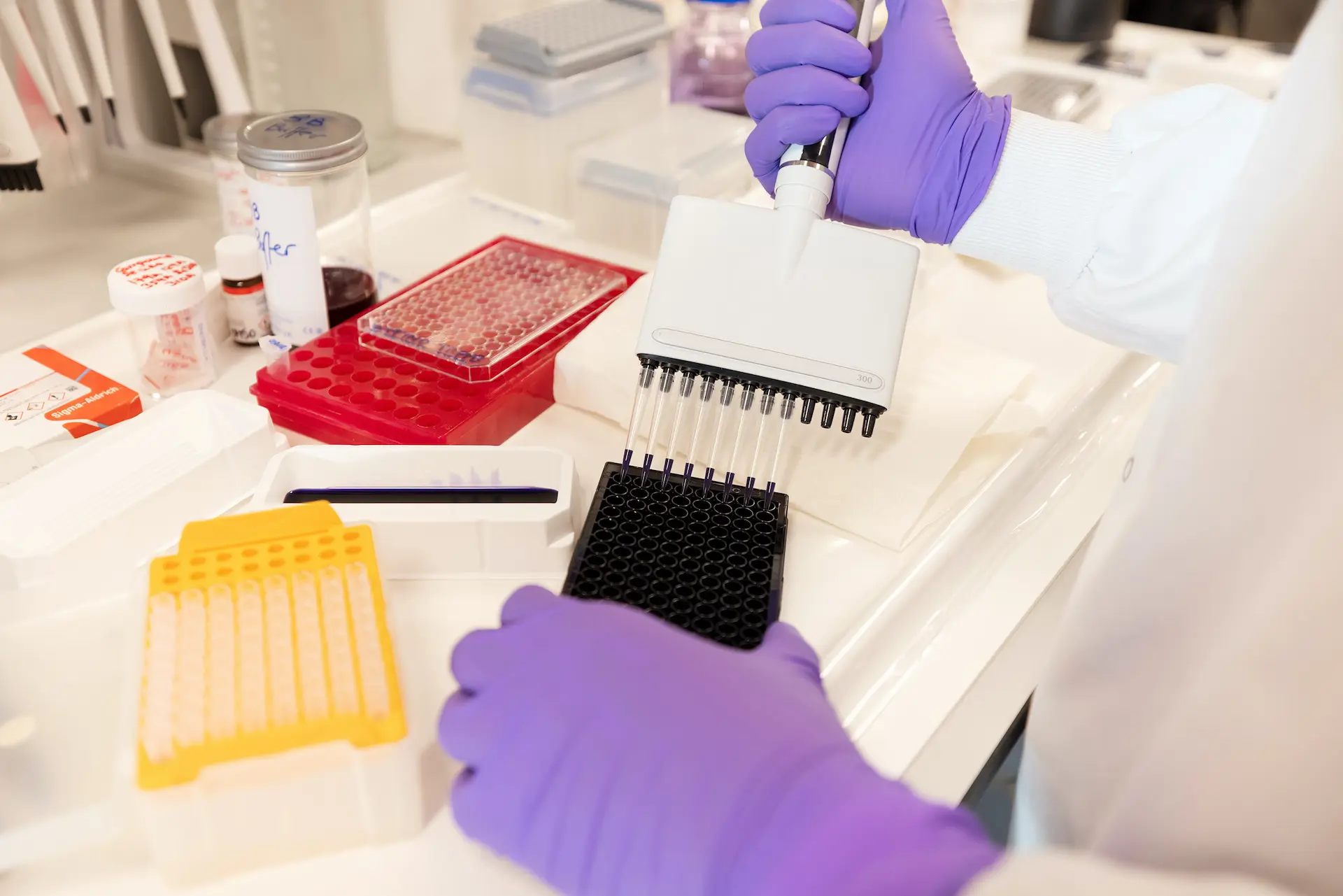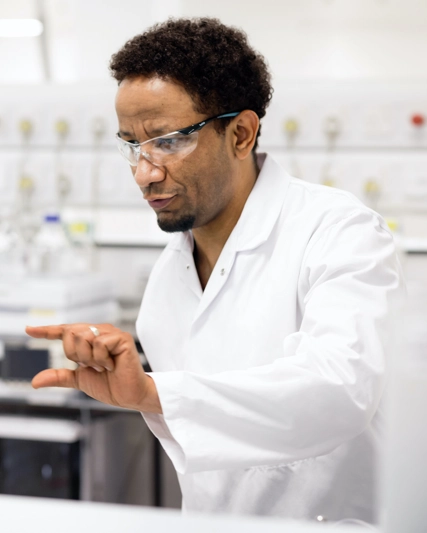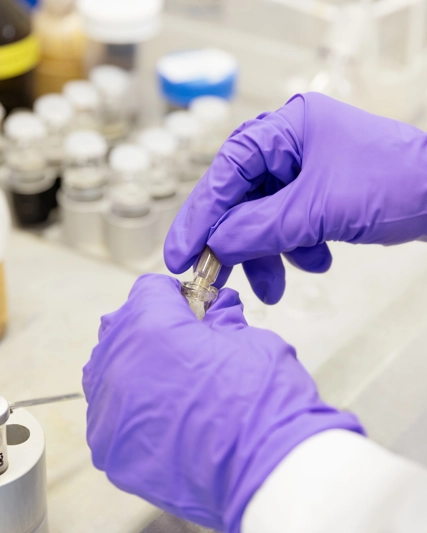Oxygen is one of the key building blocks of life on earth - every cell in the human body requires oxygen to stay alive. Scientists have long known that our bodies are able to respond and adapt to differing oxygen levels; however, it has not always been clear how this works.
Further, not everyone reacts in the same way – for example, those with chronic kidney disease (CKD) have trouble producing the hormone that signals the body to make red blood cells that carry oxygen to the tissues, leading to anaemia. By diving deeply into how the body adapts to different levels of oxygen to function optimally, we have been able to leverage notable scientific discoveries to pursue solutions for specific patient groups.
Leading with science
In 2019, a trio of scientists, William Kaelin Jr, Gregg Semenza and the Francis Crick Institute’s Sir Peter Ratcliffe, were awarded the Nobel Prize in medicine for their work spanning the last three decades that completely transformed our understanding of this process.[1][2]
They discovered that when oxygen levels are low, it causes a group of molecules to assemble into what is known as a protein complex in most cells of the body. This protein complex (called hypoxia-inducible factor, or HIF) signals the kidneys to release the hormone erythropoietin, commonly known as EPO, increasing production of red blood cells and leading to more oxygen being circulated around the body.[3]
This pioneering discovery revealed that, like a thermostat monitoring temperature and turning the heat up or down in order keep a room comfortable, the HIF pathway represents a therapeutic target that could help the body regulate its own physiological response to low oxygen levels.
Building on this groundbreaking knowledge, scientists began to consider how this science could this be harnessed to innovate new ways of helping people with CKD to stimulate their bodies to produce red blood cells and therefore manage their anaemia.
Anaemia and chronic kidney disease (CKD)
Healthy kidneys are necessary in maintaining human health – they are responsible for cleaning our blood and filtering out waste, in addition to producing EPO, which prompts the bone marrow to make red blood cells.[2] People whose kidneys are damaged due to CKD, an increasing global health burden affecting 9-13% patients worldwide, may therefore produce fewer red blood cells.[4][5] This is why approximately one in seven CKD patients also suffers from anaemia[2], a condition that may lead to a reduced quality of life and increased risk of cardiovascular disease, hospitalisation and mortality.[6]
In the short term, people with anaemia due to CKD may experience symptoms such as weakness, fatigue and shortness of breath. In the longer term, anaemia can put extra pressure on the organs, leading to organ damage and even heart failure.
Tackling the challenges of anaemia due to CKD
Our advance in understanding the scientific discoveries like that of Sir Peter Ratcliffe and his fellow prize winners has provided an important platform for the research and drug discovery that we are undertaking at GSK.
Clinical research has shown that when the body’s own physiological response to low oxygen levels is triggered, through boosting the size of the HIF signal to the kidneys, even diseased kidneys can often provide enough EPO to stimulate red blood cell production.[7]
This story helps demonstrate the potential of what we at GSK call ‘disease-agnostic research’. We believe that following the science and working hard to better understand the human body will present us with new and unexpected opportunities to solve health problems and deliver real benefits to people everywhere.
We recognise that there has been limited innovation for new treatments than can benefit patients with CKD-related anaemia over the past several years and there is more to do to meet the needs of these patients, who are often underdiagnosed and undertreated. We are confident that, by continuing to follow the science and find innovative ways to transform these discoveries into new therapeutic options, these challenges can be overcome.
References
[1] The Guardian. Nobel prize in medicine awarded to hypoxia researchers. Available at: https://www.guardian.com/science/2019/oct/07/nobel-prixze-in-medicine-awarded-to-hypoxia-researchers Last accessed June 2020
[2] National Institute of Diabetes and Digestive and Kidney Diseases. Anaemia in Chronic Kidney Disease. Available at: https://www.niddk.nih.gov/health-information/kidney-disease/anaemia Last accessed June 2020
[3] Hill, N.R et al. Global Prevalence of Chronic Kidney Disease – A Systematic Review and Meta-Analysis. PLoS One. 2016 Jul 6;11(7):e0158765.
[4] Hill NR, Fatoba ST, Oke JL, et al. Global prevalence of chronic kidney disease - A systematic review and meta-analysis. PLoS One. 2016;11(7):e0158765.
[5] Bikbov B, Purcell CA, Levey AS, et al. Global, regional, and national burden of chronic kidney disease, 1990–2017: a systematic analysis for the Global Burden of Disease Study 2017. The Lancet. 2020;395(10225):709-733.
[6] Babitt, J.L and Lin, H.Y. Mechanisms of Anemia in CKD. J Am Soc Nephrol. 2012 Sep 28; 23;(10):1631-1634.
[7] GBD Chronic Kidney Disease Collaboration. Global, regional, and national burden of chronic kidney disease, 1990-2017: a systemic analysis for the Global Burden of Disease Study 2017. The Lancet. Volume 395, Issue 10225, p709-733; February 29, 2020.



